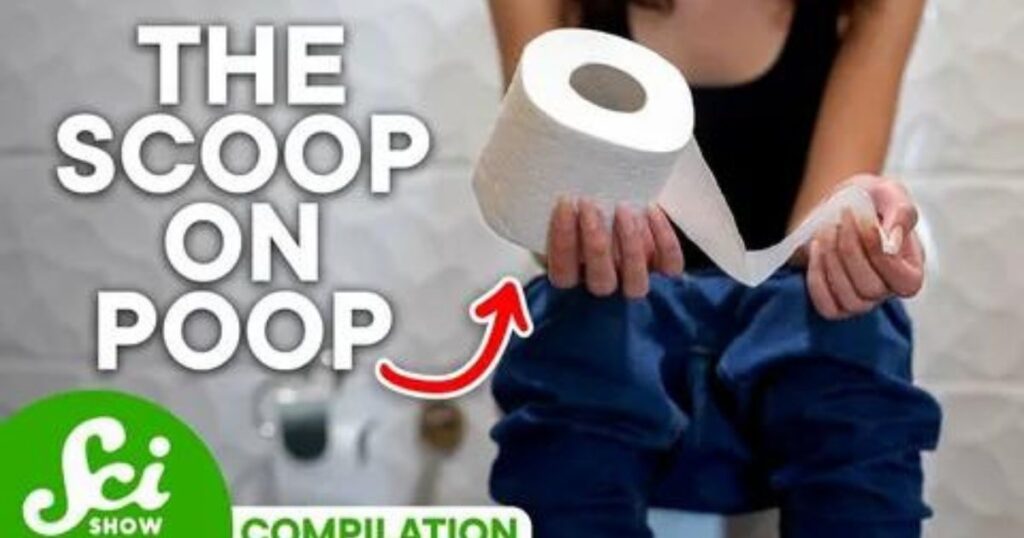Golf ball-like poop can occur due to dehydration or slow digestion. It may indicate a lack of fibre in your diet. Dehydration can harden stool, making it difficult to pass. Increasing water intake and fibre-rich foods can help soften stool and improve digestion.
Have you ever wondered, “Why is my poop like golf balls?” It might seem unusual, but the answer lies within your body’s signals. Understanding the reasons behind this peculiar resemblance can unveil essential insights about your health. Let’s delve into the mysteries behind golf ball-like poop and discover what it reveals about your well-being.
Understanding why your poop resembles golf balls can offer vital clues about your health. Factors like hydration, diet, and digestion influence this unusual appearance. Stick around to explore why this happens and what it might signify for your well-being.
Pebble poop in children and babies
Pebble-like stool in children and babies, often referred to as “pebble poop,” can signify various digestive concerns. It typically indicates constipation, where the stool forms into small, hard, and pellet-like shapes. This condition may result from dietary factors, dehydration, lack of fiber, or insufficient fluid intake.
Causes of Pebble Poop in Children
This part explores the various reasons why children and babies might experience pebble-like stools. It could include factors such as dietary changes, hydration levels, illness, medications, or underlying health conditions that might contribute to this type of bowel movement.
Symptoms and Signs
Focusing on the signs and symptoms associated with pebble poop, this section could include discomfort during bowel movements, frequency of occurrence, or any accompanying symptoms that parents should watch out for in babies and children.
Potential Health Implications
Discussing when pebble-like stools might signal a more serious issue is crucial. This part highlights red flags or concerning signs that warrant immediate medical attention, ensuring parents understand when to consult a healthcare professional.
Everything you need to know about pebble poop

Discover all about pebble poop in this quick guide. A Pebble-like stool often indicates constipation or a lack of hydration. It can be a sign of insufficient fibre in your diet. By understanding its causes, you can take steps to improve your digestive health. Increasing water intake and incorporating fibre-rich foods can help soften stool and ease bowel movements.
Pebble poop, characterized by small, hard stool, can result from various factors. It’s commonly associated with dehydration or a diet low in fibre. This condition often leads to difficulty in passing stool. Learning about pebble poop can guide you in making dietary and lifestyle changes to promote better digestion and overall health.
What does your stool say about you?
Do you place the golf ball in your stance correctly? Your stool holds clues about your health. The color, texture, and frequency can indicate digestive issues or overall well-being, signaling dietary adjustments, hydration needs, or potential health concerns. Understanding these signs helps maintain a healthy digestive system.
Observing your stool regularly is a simple way to monitor your health. Different colours, like red or black, may suggest bleeding in the gastrointestinal tract. Consistency variations, from watery to hard pellets, could highlight dietary imbalances or potential infections. Paying attention to these details aids in maintaining a healthy gut.
pebble stool colon cancer
Pebble-like stools might suggest constipation or low fibre intake but can also hint at underlying issues like colon cancer. Any persistent change in stool appearance, even if resembling pebbles, warrants a prompt healthcare consultation.
Colon cancer could manifest as pebble-like stools among its symptoms. While not always indicative of cancer, persistent changes in bowel habits should never be ignored. Timely medical advice is crucial for proper diagnosis and treatment if such stools persist.
why does my poop come out in small soft pieces

| Possible Reasons for Small, Soft Poop Pieces |
| 1. Lack of Fibre: Insufficient intake of fruits, vegetables, or whole grains can lead to softer, smaller stools. |
| 2. Irritable Bowel Syndrome (IBS): IBS can cause changes in stool consistency, leading to small, soft pieces. |
| 3. Digestive Disorders: Conditions like Crohn’s disease or celiac disease might result in irregular stool formation. |
| 4. Dehydration: Not drinking enough water can result in softer, smaller stools. |
| 5. Medications: Certain medications or antibiotics can impact stool consistency. |
why is my poop hard at first then soft
Experiencing hard poop initially could signal dehydration or a lack of fiber. It may lead to discomfort while passing stool. Later softening might indicate changes in hydration or diet affecting bowel movements.
Consistent shifts between hard and soft stool could point to underlying issues. Monitoring diet and consulting a healthcare professional can offer insights for proper treatment.
Causes of Pebble Poop and What to Do About It
What is pebble poop?
- Small, pellet-like or pebble-shaped stool
- Often in smaller, separate pieces resembling rabbit droppings
- Can indicate irregular bowel movements or constipation
What causes pebble poop?
- Lack of dietary fiber or hydration
- Slow transit time in the colon
- Conditions like irritable bowel syndrome (IBS) or intestinal blockages
- Side effects of certain medications or supplements
FAQS
What causes golf ball-sized poop?
Dehydration, slow digestion, low fibre intake, or digestive issues can lead to golf ball-sized poop. Monitor hydration and fibre intake.
What should I do if my poop is hard balls?
Increase water, fibre intake through fruits, veggies, and whole grains. Persistent discomfort warrants a healthcare professional’s advice.
When should I worry about pebble poop?
If pebble poop persists beyond a few days or accompanies severe pain or bleeding, seek medical attention promptly.
What does unhealthy poop look like?
Unhealthy poop can vary—hard, loose, contain blood, mucus, or unusual colours. Consistent changes signal underlying issues.
Conclusion
Recognizing the reasons behind Why Is My Poop Like Golf Balls empowers you to make necessary dietary adjustments and seek help if needed. Your poop’s appearance can reveal essential clues about your well-being, so staying attentive to changes is crucial for maintaining good digestive health.











